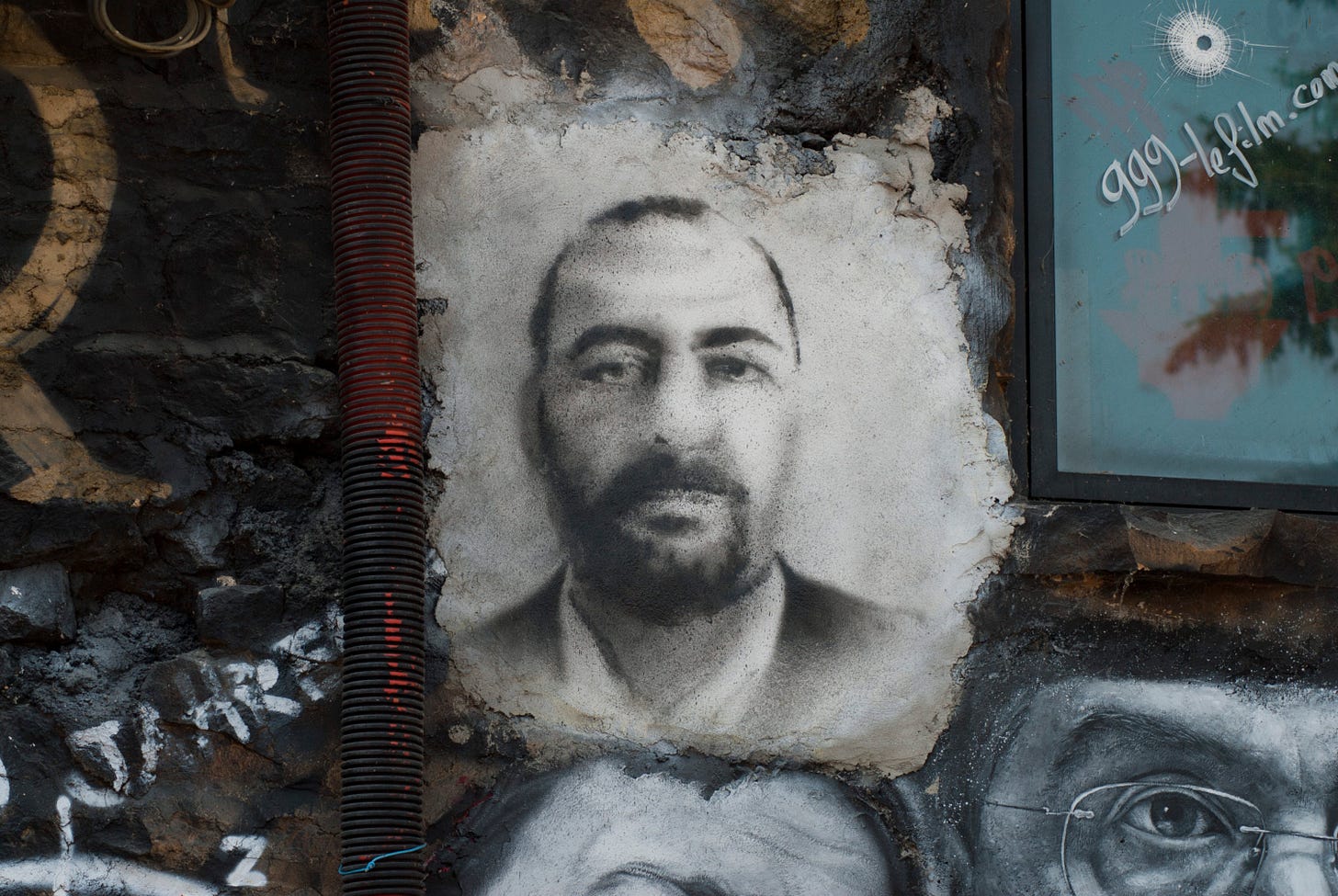Al-Baghdadi Is Dead. The War Against Islamism Continues.
Abu Bakr al-Baghdadi is dead. Now what?
Al-Baghdadi’s death couldn’t have come at a better time for the president. He wants to leave Syria (except the oil of course), and he is under pressure from Republicans for his abandonment of the Syrian Kurds, who are American allies. The al-Baghdadi raid buys him some political capital to claim that he has cut the head of the snake, and so now America can leave.
The parallels between this situation and the one in 2011 are striking. The Obama administration had been impatient to leave both Iraq and Afghanistan. The Status of Forces Agreement with the Iraqi government was set to expire at the end of the year, and the president needed a symbolic closure, especially in lieu of his reelection campaign next year. Then, out of the blue, on May 2, 2011, Obama broke the news to the nation: Osama bin Laden had been killed. The next month, the administration would release its new counterterrorism strategy. They declared that Iraq was stable and began the pullout. As Vice President Joe Biden liked to tell people, “Osama Bin Laden was dead—and General Motors was alive!”
It worked for Obama. But not so much for America. Three years later, the world would go into panic mode when a footage was released of a new jihadi-Salafist group called the Islamic State of Iraq and Levant that had captured the Anbar Province in Iraq that America had pacified through the expenditure of a great deal of blood and treasure. And America’s troops had to go back to face the new threat that had arisen in their absence.
Consider then where America finds itself today. The current president is eager to pull U.S. troops out of the Middle East. He is facing a difficult reelection. And now he’ll be able to say al-Baghdadi is dead—and the economy is thriving!
And perhaps this will work for Trump as it did for Obama.
But if he continues to draw down American military forces from the Middle East, Trump, like Obama before him, will find himself back there again, under more adverse circumstances.
Because while bin Laden and al-Baghdadi are dead, bin Ladenism and al-Baghdadism are still very much alive.
Donald Trump might be a nationalist who hates globalism, but Islamists in the Middle East are literally globalists. They seek to create a single global, Islamist state, ruled by them. They view the United States as the greatest stalwart against this aspiration. And they are correct in this view.
Which is why the United States has been their primary target. And however war-weary Americans might be, however much Americans might want to stop being the world’s policeman, the choice is not ours alone. The enemy gets a vote, too.
It is no coincidence that the United States was a target of al-Qaeda six times before deciding to retaliate in 2001, each attack deadlier than the one before—and zero times since.
It is also no coincidence that the United States was the target of Islamic State attacks seven times until 2017 and zero time since the caliphate has been dismantled.
Within a few days or weeks, the Islamic State will announce a new leader. And just as the death of FDR in the middle of World War II didn’t change America’s war aims, the death of al-Baghdadi won’t change the Islamic State’s. The Islamic State has an organizational structure designed to carry on regardless of leadership. It is not a one-man show.
In fact, the problem was never al-Baghdadi—it isn’t really the “Islamic State,” even. These individuals and organizations are symptoms, not the cause. The root cause is Islamism and the geopolitical situation in the Middle East which makes this ideology fertile.
For a decade, American presidents have been impatient and dishonest about what this struggle against Islamism means: It is at least a generational one. It cannot be won overnight, or even over a single presidential administration. It’s very fashionable to complain about “endless wars” these days. Well, when you’re fighting a global ideology and not a nation-state, those conflicts take a lot longer.
Remember, there were people who complained about the “endless” Cold War that America fought for half a century. But the price for defeating communism turned out to be a bargain relative to the costs of the two great wars that were fought on much shorter time-tables.
In any great, generational struggle there are voices who complain about what feels like an endless exertion. These sentiments are always understandable, but they are usually misguided.
As long as the soil in the Middle East is fertile for Islamism, Islamism will grow. What the region needs is a foundational transformation of its politics, something it is capable of achieving only under security and stability supported by the outside.
Seen in this light, American intervention is not altruism. It’s a hedge against the future growth and spread of Islamism that will always—always—seek to harm America if it gains enough purchase to do so.
The Trump administration won a great victory this weekend. And now the president has a choice: Does he want to repeat Obama’s mistake?


